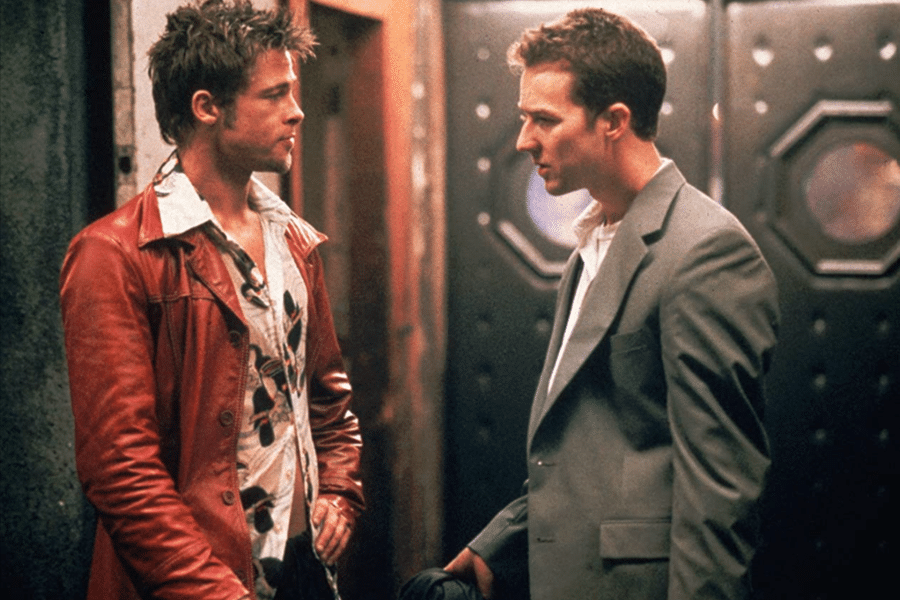
Secret Networks
Jessica Strawser
We know, we know: The first rule of Fight Club is: You don’t talk about fight club.
It’s part of our lexicon now: We’re all in on the joke. But the idea that a club like that could exist? That there’s a place behind closed doors where everyday people become something else entirely, playing by different rules—adopting a shared ethical code of their own?
We might not talk about it, but we sure do like to read about it.
And there’s no rule against that.
I’ve been fascinated by books about secret networks for as long as I can remember. Who among us hasn’t been swept away by the secret societies of Dan Brown’s Da Vinci Code, spellbound by the idea of all those symbols hidden in plain sight—from renowned artwork to revered chapels, from the museums of France to the sacred grounds of Scotland—through generations of protectors? Who hasn’t been on the edge of our seats devouring accounts of The Underground Railroad, including Colson Whitehead’s masterpiece Pulitzer Prize–winning novel of the same name, which imagines literal train tracks run by brave conductors beneath the Southern soil?
I live in Cincinnati, where the Ohio River once marked the boundary to the North, and the town remains full of historical markers and museums that pay homage to the passengers and those who helped them to safety. Walking in their footsteps, you can still feel the tension, the fear, the risk, the determination to do the right thing, the will to survive. For every heartbreaking story is another one that captures the imaginations of visitors of all ages—with the against-the-odds, in-your-face reminders that ordinary people are capable of extraordinary things.
It’s a testament to the best—and worst—of human nature that the historical mystery shelves are especially full of secret networks. Just when we think we know World War history, we can see it anew through the eyes of unsung Resistance heroes—think of Kristin Hannah’s French sisters who each has her own way of resisting Nazi occupation in The Nightingale, and Kristin Harmel’s based-on-a-true-story heroine who forged new identities for fleeing Jewish children in The Book of Lost Names. Just as harrowing are the stories of spies—particularly the women recruited to serve as secret agents abroad, brought to breathless life in page-turners such as Kate Quinn’s The Alice Network and Pam Jenoff’s The Lost Girls of Paris.
The fact that so many such titles are based on real life helps pave the way for countless more wonderful novels that are pure imagination, allowing us to suspend our disbelief and buy in. You know the ones: The youthfully mischievous The Mysterious Benedict Society, full of brainteasers for adults and children alike from the imagination of Trenton Lee Stewart. The conflictingly feminist social club in Laura Hankin’s A Special Place for Women, where a coveted invitation might involve certain unspoken expectations. And right back where we started with Chuck Palahniuk’s Fight Club.
For writers, this is a free-for-all: No historical research required, very few parameters to follow, a blank slate to imagine your own players, draft your own mission statement, and make your own rules. For readers, it’s fun to believe it could happen—not in history, but right now—along for the ride as we explore the endless possibilities of the age-old question: What if…?
And yet doesn’t all imagination have a basis in reality?
As both a novelist and a lifelong reader, I’ve always preferred characters who are shades of gray. I find it’s truer to life that way, because very little in this world is as black-or-white as it may seem: Protagonists have flaws; antagonists have soft spots. When it comes to a good thriller, part of the thrill—and dare I say the fun—is not knowing which characters we can trust. Maybe that’s part of what makes secret networks such rich minefields: They make us question which players are really the good guys here, especially if even one nefarious actor among them is willing to bend the rules and do bad things. We instinctively know to be wary of double agents.
I find it disturbingly easy to imagine unsavory characters walking among us. We see them every day in the headlines, and their baffled neighbors interviewed on the local news: He seemed like such a normal guy. Maybe that’s why I prefer to imagine the everyday superheroes who don’t wear capes. The ones who don’t need our nation to be at war to find a cause they care about.
For example, in my new novel, The Last Caretaker, I dreamed up an everywoman fresh off a divorce who is looking for a fresh start. She finds one as resident caretaker on a nature reserve. It comes complete with a furnished farmhouse, and all she has to do is move in and keep an eye on things. Until a woman in distress shows up at her doorstep in the middle of the night, clearly expecting a safe place to hide. And it’s suddenly clear caretaking involves more than she bargained for. Which makes her wonder why the job was open in the first place… since no one seems to know what happened to The Last Caretaker.
I’ve always been intrigued—and properly awed—by murmurs of “whisper networks” who help women in dangerous situations escape abusive men and assume new identities in new locations far away. I’ve always wondered how they really work. And the truth is, I still don’t know.
But it sure was fun dreaming up a cast of characters who did.
About the Author
Jessica Strawser (jessicastrawser.com) is editor-at-large at Writer’s Digest and the author of domestic suspense and popular book club fiction, including the Book of the Month bestseller Not That I Could Tell. Her latest, The Last Caretaker, releases in December. Her work has appeared in The New York Times Modern Love, Publishers Weekly, and other fine venues. She lives with her husband and two children in Cincinnati, Ohio, and loves connecting with readers on Facebook and Instagram @jessicastrawserauthor.

More Thriller Features
Political Thriller Protagonists
What are the qualities of a good protagonist in a political thriller?
Spy Thriller Villains
Unraveling the Bad Guys of Espionage Fiction
Political Thrillers for Independence Day
4th of July Political Thrillers



